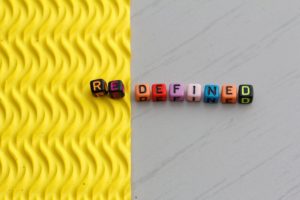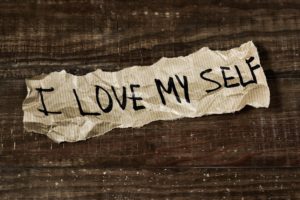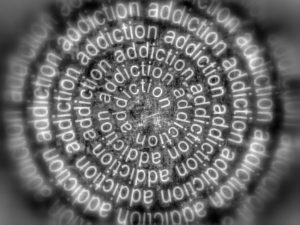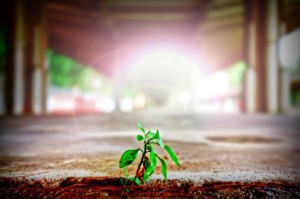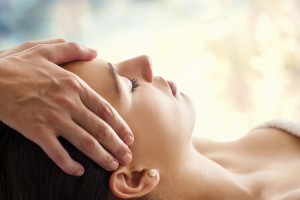Rose’s Take On “Redefining Recovery”
 Rose Lockinger is a passionate member of the recovery community. A rebel who found her cause, she uses blogging and social media to raise the awareness about the disease of addiction. She has visited all over North and South America. Single mom to two beautiful children she has learned parenting is without a doubt the most rewarding job in the world. Currently the Outreach Director at Stodzy Internet Marketing.
Rose Lockinger is a passionate member of the recovery community. A rebel who found her cause, she uses blogging and social media to raise the awareness about the disease of addiction. She has visited all over North and South America. Single mom to two beautiful children she has learned parenting is without a doubt the most rewarding job in the world. Currently the Outreach Director at Stodzy Internet Marketing.
You can find me on LinkedIn, Facebook, & Instagram.
In the beginning of the book Alcoholics Anonymous there is a sentence that states, that Alcoholics Anonymous does not have a monopoly on recovery. This sentence is important because it gives cadence to the fact that within AA, and by proxy every other 12 Step Program, a solution has been discovered for the treatment of alcoholism and addiction, but it is not the only treatment.
This sentence is often times repeated in the rooms and in treatment centers but we don’t really believe it do we? The general attitude in both 12 Step programs and in treatment is that if this doesn’t work for you then you are hopeless because this is the only way.
These words aren’t usually said out loud, but they are implied by such statements as, “Maybe you need to go and try some controlled drinking” or “You’re just not ready to surrender” and while I will admit that I found the answer to my problem with addiction and alcoholism within a 12 Step program, the same cannot be said for everyone.
This dogmatic approach that is then given plausible deniability by such statements as the one in the first paragraph can often be confusing and can result in people becoming disillusioned with recovery and never truly seeking an answer to their problem.
I think it is also important to note that it makes sense for 12 Step programs to take the stance that this is what we are offering here, but if you find that this doesn’t work for you then seek help elsewhere. It makes sense because it is the only thing being offered by the 12 Step programs, but seeing this same thought process within treatment just doesn’t seem to add up for me.
The reason for this is that drug treatment is not supposed to be affiliated with any particular type of movement, just as 12 Step programs do not lend their names to any outside enterprises, so hitching the treatment wagon to one solution is like trying to fight every type of cancer with a medication designed only to fight certain types of cancer.
This analogy may seem like a stretch, but it isn’t really because the way that addiction expresses itself in individual people varies greatly among addicted populations. Some people are addicted to stimulants, others to opiates, and others to alcohol. Some people used drugs to help with anxiety, others for depression, and still others for a reason unbeknownst to them. So to sit back and attempt to get everyone sober in the same manner and not be open to the idea that there are other options out there is tantamount to irresponsible practice.
I have seen too many people die in my time in recovery to believe that this is the best that we have to offer. Granted before the advent of the 12 Steps pretty much everyone was resolved to die an addicted death or wind up in a sanitarium, but with the different variants that we now have on how some can get help, we need to be employing all these methods in order to try to stop the bleeding.
Basically, all I am saying here is that if we have other options we should offer them to people because by saying to an addict or alcoholic you have to get sober through the Steps and if you can’t then you’re screwed is killing people.
I know that this may sound controversial and I don’t mean to stir anything up just for the sake of it, but I want it to be clear that the 12 Steps may not be the only method by which people find recovery, and that if this is the case then we may need to redefine what recovery means.
As it stands recovery means to be involved in a 12 Step program. It means that you are abstinent from drugs and alcohol and that you are living a happy and healthy life. But what of someone who is abstinent from drugs and alcohol and is living a happy and healthy life, but is not involved in a 12 Step program? We usually look down on these people, and attempt to guilt and shame them or make some off-handed remark about how they’ll probably use again. This is in no way shape or form helpful and I believe that it can actually keep people from finding help if and when they need it.
We need to start to think about recovery as a way of life outside of our own norms and understand that just because we found a solution in one manner doesn’t mean that everyone else will also. We need to keep the same open-mindedness that we employee within the 12 Steps to solutions outside of the Steps and the treatment industry should follow suit on this.
If we really want to start combat addiction in this country as we say we want to in the news, then we need to start thinking about what messages we are sending to people and be cognizant of the fact that we may not have all of the answers. By allowing people to achieve recovery within their own terms and under principles that make sense to them, we can open the door and help thousands of people who lay outside the grasp of the 12 Steps.
For myself I personally don’t care how someone gets sober and finds happiness, all I care about is that they overcome the problems that are currently ruining their lives. I am grateful that I have found a solution but as advocates of recovery, we have to start to think outside of the box and open our eyes to the people we have silently neglected.
Essential Oils in Recovery
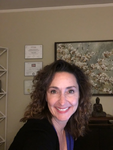 I’m Nancy Ann Key, Transformational Guide and Elevatrix of Women. I’m a fierce lover of Life, of all things spiritual and human. I see the integration of All of it in every aspect of every day, and I draw tremendous inspiration from this comprehensive viewpoint. I have a gift for meeting women exactly where they are and seeing the bright shining lights that surround them. I help them to feel their fullness, their power and their connection with Everyone and Everything.
I’m Nancy Ann Key, Transformational Guide and Elevatrix of Women. I’m a fierce lover of Life, of all things spiritual and human. I see the integration of All of it in every aspect of every day, and I draw tremendous inspiration from this comprehensive viewpoint. I have a gift for meeting women exactly where they are and seeing the bright shining lights that surround them. I help them to feel their fullness, their power and their connection with Everyone and Everything.
Recovery. What an immensely expansive word this is.
I love to consider such ideas from the perspective of both macrocosm and microcosm, and this really seems appropriate as a way to approach the enormity of this topic in an understandable way.
I’ll begin with the microcosm. From a human-experience perspective, we wish to recover our bodies. We wish to heal our bodies. This is because our bodies are our vehicles as spiritual beings and so our journey here in this lifetime depends greatly on the vitality of the Body.
And then, as we expand out into the wider perspective that is the macrocosm, we begin to look at our role as part of the flora and fauna of Earth and how it is that we might serve Her greater recovery, realizing She’s in a space where she’s given maximally, at her own expense, where she has been tapped out, targeted, perhaps even abused and mistreated.
Is this beginning to sound familiar to you? Can you see how You and Earth have shared so many similar experiences and pains? Can you see how You and Earth are aspiring to a similar sense of recovery?
And now, if you will, begin to see the interplay of your own personal recovery, our collective recovery as humans, and the recovery of Earth. And begin to see the importance of recognizing what it is each of us is here to offer as the unique beings we are, and also… (wait for it)… what it is that we are here to Receive.
And so I’ll begin here in sharing the role of pure essential oils in our bodily recovery, our spiritual recovery, and in the recovery of Mama Earth.
Beautiful Mother Earth is here to feed us and to heal us, as mothers are called to do. So how do we let her in and order that she can do so? In a time of so much question, in a time where even her food supply has been so dramatically affected, how do we allow her in?
We begin by going to where the soils are still rich, where humanity has not been so swayed, so strayed; where there is profound goodness to be experienced, delivered and received amongst humans in an open exchange.
Pure essential oils are aromatic compounds which are extracted from plants – be it the roots, the bark, the stem, the leaves, the flower – and distilled for elevated potency to be used for health benefit in the human body.
These extracts are tens to 100 times more potent than herbs, so they are deeply powerful representations of the plants.
We have a symbiotic relationship with plants. We share certain aspects of our cell structure with theirs. Pure essential oils are the lifeblood of the plant, the immune system if you will, and they are here to provide us protection and opportunity for growth, just as they do for the plant.
The aromatics call to us, as they do in nature, communicating to us that there is something beautiful and helpful they would like to share. We can trust this communication if it truly invites us in. When we receive the aroma, the plant life enters our own cell structure and begins to work in specific therapeutic manner within the body.
Harvesting the plants from their indigenous soils is essential, so that the plant bears all of its God-given strengths. And when the farmers receive love, when their communities and families receive support and good will, there is a karmetic equation that begins, an energetic shift that has unlimited reach and serves the greater good.
And here’s my favorite part. The essential oil aromatics evoke feelings, as the olfactory nerve delivers a message to the amygdala, the center of feeling and association in our brains. Each essential oil creates a specific feeling, and so the potential to use the oils intentionally in order to create our experience in any given moment becomes a powerful tool for manifestation of what it is we’d like to be experiencing in our lives.
This is because anytime we’d like to be experiencing something in our lives, anything we want or desire, what we are actually desiring is the feeling that we believe that “thing” will give to us.
When we become clear on the feelings that we would like to experience, and we use a beautiful, natural, safe tool like essential oils in order to create that feeling in our bodies and in our person, we change our frequency, we come into the vibration of what it is that we want, and the process of manifestation of our desires is exponentially accelerated.
I think that’s enough for now. Perhaps enough for even a lifetime! I’ll let that resonate within you and look forward to our next interaction around the oils.
Self-Love/Self-Worth: 5 things I did to build it in Sobriety
 Rose Lockinger is a passionate member of the recovery community. A rebel who found her cause, she uses blogging and social media to raise the awareness about the disease of addiction. She has visited all over North and South America. Single mom to two beautiful children she has learned parenting is without a doubt the most rewarding job in the world. Currently the Outreach Director at Stodzy Internet Marketing.
Rose Lockinger is a passionate member of the recovery community. A rebel who found her cause, she uses blogging and social media to raise the awareness about the disease of addiction. She has visited all over North and South America. Single mom to two beautiful children she has learned parenting is without a doubt the most rewarding job in the world. Currently the Outreach Director at Stodzy Internet Marketing.
You can find me on LinkedIn, Facebook, & Instagram
Before I got sober I pretty much had no self-worth. I walked through most of my life thinking that I was a terrible person and I had a deep seated self-hatred that led me to a lot of self destructive behaviors.
This wasn’t really a conscious thought though and I wasn’t aware of low my self-worth was. I believed that I loved myself, but my actions were all to the contrary, because the truth is that a person who loves themselves didn’t do the things that I did. They didn’t drink and use drugs like I did and they didn’t stay in unhealthy relationships because they believed it was all they deserved.
Then I got sober and I started to really take a look at my life and how I felt about myself. Along with the holistic approach to Sobriety I learned in treatment I came to the realization that in order for me to continue to heal my low opinion of myself needed to change. From this point of understanding I was then able to begin the process of learning to love myself and I did this through doing things that built my self-worth.
For me self-love and self-worth are linked because before I could begin to love myself I had to first build up my self-worth. This wasn’t really easy at first and it took a concerted effort on my part, but through doing the 5 things listed below I eventually learned what my truth worth was and in turn I learned to love myself.
5 Things I Did to Build Self-Love and Self-Worth
1. I allowed others to love me and I didn’t push them away.
When I first got sober the idea of allowing people to love me until I loved myself didn’t really make much sense. It just sounded like a nice platitude, but what I found is that this was the beginning of my ability to find my self-worth and learn to love myself. Coming into the rooms of Alcoholics Anonymous I experienced so much love from people that it was incredible. They didn’t care what I had done in my life or how I felt about myself. They just wanted me to get better. Feeling loved and not pushing these people away allowed me in time to eventually see that I was worthy of love and that I wasn’t as bad of a person as I thought I was.
2. I used logic—I did my best to recognize the negatives message I would tell myself.
Before I got sober I was really good at putting myself down. I would berate myself in my own mind and I thought that these types of thoughts were true. Once I got sober I realized that I no longer had to engage in self-flagellation, and so I began to recognize and dispel a lot of the disparaging remarks I would think about myself. I still to this day can get caught in negative thinking towards myself, but I am able to recognize these thoughts quickly, and change my thinking accordingly.
3. I looked in the mirror and I said positive affirmations.
I actually still employ this method of self-love in my life today and I have found that it has been particularly useful in building my self-worth. The affirmations that I say to myself in the morning to start my day are not even things that I necessarily believe at the time, but just the act of saying them out loud to myself helps me to create new neural pathways that reinforce the ideas. It also helps to break the cycle of negative talk and replaces it with positive talk, which is a great way to begin any day.
4. I realized that I didn’t have to perfect and sometimes the best that I could do was to just stay sober and start over tomorrow.
Coming to the realization that I was not perfect, that I was bound to make mistakes, and that this was okay was a huge change for me. In the past whenever I made a mistake I would instantly believe myself to be a failure and I would get so down on myself that it was hard for me to believe that I had any worth. In sobriety I came to understand that I am human being and I will make mistakes and that is okay. By allowing myself the space to screw up and learn I have learned to love myself more and I no longer have to tie my self-worth to an unattainable level of perfection.
5. I practice self-care
Practicing self-care has gone a long way in helping me to not only love myself but also learn my own worth. By eating healthier, exercising more, and doing yoga as often as I can, I have found that I feel better about who I am. I also try to have a healthy sleep pattern and when I need to take a break from something I do so. Taking care of my mind and body has done wonders for my life and I am not sure what it is about exercise that really makes me feel good about myself, but it does. I can tell the difference in my thoughts when I haven’t been practicing self-care, because the thoughts in my head get increasingly more negative and are harder to break out of.
Learning to love myself has taken time and it is a process that is still evolving to this day. The way that I feel about myself and the way that I treat myself is contingent on what I do throughout the day to ensure healthy habits and a healthy frame of mind. What this means has changed over my time in recovery, but by doing the 5 things mentioned above my life and the way that I feel about myself has significantly improved.
No One’s Coming
I was hit by these words that a colleague once shared. “No One is Coming, ” she said. These words struck at the core. So many years I lived in victim consciousness as I thought that someone needed to acknowledge my hurt and pain. I wanted them to own what they had done to me. I thought the same of “God.” I wanted everyone to validate my experience as I suffered through my teens and early twenties. I felt that I had grown up so fast and been so responsible for so many years that I didn’t want to participate in my healing. I had all the rationalization of why I didn’t need to participate in life. I wanted so badly to just wallow in my poor me, self-pity and victimhood. It’s like resolving not to resolve. Deciding to give up but still having to live life. I was lost in limbo for many years as I stayed in the mode of just getting by, just existing, barely surviving. I felt empty and energy-less. It was the ultimate co-dependence of wanting someone else to do the work to heal the situation. I felt like I didn’t cause it so why do I have to heal it. This was such a disempowered way of looking at my life. I continued to make poor choices that added on to my suffering, re-traumatizing myself. Until the day I decided that I would take responsibility for my life and participate in my recovery/healing process. “No one is coming.” No one is going to do the work for me. I have to show up for me. The Authentic part of me started to show up. I started to engage activities that strengthened my Authentic Self versus my ego. I decided to work on breaking down the wall that barricaded my heart for so many years. I decided to show up for me. I’m coming. I no longer need other people’s validation of me to feel okay. I am validating myself. I am showing up for my healing. I am here for my Self.
Drugs and Alcohol Aren’t The Only Destructive Behaviors
 Rose Lockinger is a passionate member of the recovery community. A rebel who found her cause, she uses blogging and social media to raise the awareness about the disease of addiction. She has visited all over North and South America. Single mom to two beautiful children she has learned parenting is without a doubt the most rewarding job in the world. Currently the Outreach Director at Stodzy Internet Marketing.
Rose Lockinger is a passionate member of the recovery community. A rebel who found her cause, she uses blogging and social media to raise the awareness about the disease of addiction. She has visited all over North and South America. Single mom to two beautiful children she has learned parenting is without a doubt the most rewarding job in the world. Currently the Outreach Director at Stodzy Internet Marketing.
You can find me on LinkedIn, Facebook, & Instagram
A common misconception held by many people is that the crux of drug addiction and alcoholism is the abuse of substances. The belief is that once the drugs or alcohol are removed then the problem goes away. If you’ve been sober for any period of time you know that this couldn’t be further from the truth. Drinking and drugging are but a symptom of these illnesses and for a time they are both symptom and solution. I had no idea how easily I would replace one addiction with another that is not to say that I took it the same level that I did with drinking and drugging.
I don’t mean to downplay the destructiveness of excessively drinking and drugging because without the swift punishment that they served up I’m not sure if I would have ever gotten sober, but what I discovered once I got sober is that the problem ran far deeper than I could have ever imagined.
I found that I engaged in a plethora of destructive behaviors that had nothing to do with alcohol or drugs and yet had everything to do with my addiction. This was probably one of the most startling things that I learned in early sobriety, that there was in fact a lot about myself that had to change. I began to realize that those old timers weren’t kidding when they said the only thing I had to change about myself was everything.
First, and this didn’t come as much of a shock to me; I knew that I had to deal with my eating disorder. I am not alone as a woman in recovery that also has an eating disorder, but I knew that if I was going to have a chance at sobriety, I also had to get this aspect of my life under control. In the time that I have been sober, I have seen many women and a few men, plagued by this destructive behavior. Some have even wound up drinking again because they were unable to work through it.
My eating disorder for me was of paramount importance. It is where I first began to self-destruct and I believe that it resides in the same place in my psyche as my addiction. So this was one destructive behavior that I had to deal with in order for my sobriety to be meaningful.
Once I was able to get the drugs and alcohol out my system and my eating was stabilized I then noticed that my addiction began to express itself in other aspects of my life. This is something that every other person that I have met in sobriety has experienced as well. The drink or drug is removed and their addiction begins to express itself in other ways. For some, this may mean that they cannot be alone. They may bounce from relationship to relationship clinging on to the first person that they find in order to not feel that loneliness creep in. Others may throw themselves into their work at the expense of relationships and their recovery. Still, others may spend their money unwisely and ruin themselves financially. Pretty much any destructive behavior that you could think of can be found in sobriety as well, but the difference is that in sobriety we often have a chance to change.
Sobriety is all about self-discovery and often times this self-discovery leads to the unearthing of destructive behaviors that we may not have known were destructive, to begin with. As the saying goes, the road narrows the longer you stay sober. This has been the case for me and I recently discovered my engaging in justified anger that was no longer healthy for me. This may sound fairly innocuous, but the longer I’ve stayed sober, the more destructive its become. The majority of this anger is focused towards my ex-husband, whom I have two children with. I’m not going to lie at first it was nice to revel in my anger. It didn’t feel destructive at all and it actually made me feel powerful. It fed something in me at that time I guess I needed to fill, but the problem is that in time it began to consume me. I have found that participating in this destructive behavior is actually starting to adversely affect my life and with each venomous word that I say about him, joy and peace leave me. Coming to realize this I now know that I have to try to change, and so the process of letting go begins again.
One of the more destructive behaviors that I have seen people engage in during my time in recovery is gambling. This is not really surprising as there is an entire 12 Step program devoted to gambling, but what did surprise me is how many people I knew that started to have problems with gambling once they got sober. Many of these people didn’t really gamble during their active addictions and like many other compulsive behaviors it started out fairly innocently. Over time though the gambling got worse and I have known a few people who have actually drank, at least partly because of acting out in this way. I’m not saying that gambling was the reason they drank, but what I have learned is that failure to at least trying to change behaviors that are bad for us is a great way to block out our spiritual connection, which for an alcoholic or addict is never a good thing.
I wrote down in one of my books fairly early on, “If you don’t walk through the fire, the fire eventually comes to you.” Partially the philosophical musings of someone newly sober, but this idea still holds weight with me today. If I have learned anything in my time in sobriety it is that I must at the very least be willing to look at myself and try to grow into being a better person. When I start to say I will not change this, or willfully ignore the facts in front me, I am setting myself up for failure, and for me, failure is to drink and drug again.
How I applied the 22 Principles of Spiritual Psychology to my Recovery from substances, mental health and trauma
1. We are not human beings with Souls; we are Souls having a human experience.
This is the paradigm that shifted my recovery and my life forever. It truly did. When I recognized that my substance use, mental health and trauma issues were part of the human experience, it freed me into an understanding that I’m divine, whole and complete as the spiritual being. There’s nothing wrong with me at the core. These have been behaviors, coping mechanisms and failed attempts to survive the best I knew how at the time. I’m a spiritual being having a human experience allows me to drop the shame of past choices and behaviors and reconnect with the truth of who I am… A divine being who is here to share love, light and compassion with the world. How might holding yourself as a spiritual being support inner freedom?
2. The nature of God is love!
I didn’t have any connection to God when I got sober or so I thought. My experience of God included a lot of hatred, disconnect and disgust. Wow, what a projection?! These qualities were my experience of myself as well. My beef wasn’t really with God, it was more with me. Therefore, it took some time to open up to the idea of God being loving because in turn that meant that I was loving too and had to treat myself accordingly. Could your relationship with “God” be reflecting back something powerful to you?
3. Direct experience is the process through which belief or faith is transformed into knowing.
I thrive on experiential experience. I have to experience and practice the skills and tools I’m learning. When you first start off, it’s pretty much an emptying of the old toolbox and filling it with something new. New feels awkward and shaky for awhile and then you learn what you like, what works for you and what you want to incorporate into your daily recovery practice. As you deepen in your new skills, the skills become your practice and the practice supports your inner knowing.
4. Since we are all part of God, our nature also is Love, and we have the opportunity to know our Loving nature experientially, here and now!
Seeing myself as loving was a long shot. I’d carried such self-hatred around that it was hard to look myself in the mirror. I had prided myself on being different, misunderstood and “not belonging” so acknowledging that I was one with others and one with God was definitely a process for me. However, as I learned how to have compassion for myself, my compassion for others and the human experience deepened. I could see myself in others; the good and the bad. I learned how to let go of judgments so I could remain peaceful within. I started to experience Oneness and the amazing opportunity to use all my challenge’s in life as a way to self-actualize.
5. Physical world reality exists for the purpose of spiritual evolution.
I started to realize that all the “things” that had happened to me in my past where in service to my spiritual evolution. I was here to evolve my consciousness and furthermore, it was my calling to support other people in using their life’s challenges to find out the truth of who they are and use that truth for good in this world. Therefore, I could look at everything as an opportunity for learning and growing. This mindset supported me in shifting from victim to the creator of my life, one of the most empowering experiences I’ve ever had.
6. Spiritual evolution (growth) is a process, not an event.
Letting go of the goal line, letting go of needing to control or accomplish to feel good about myself has been so freeing. Life is a process, not a destination, not an event. You won’t be happier when you have that job, or that car or that whatever. Happiness is within, it’s a state of mind, a state of being. You could be happy doing anything, anywhere if you so choose. Learning that spiritual growth was a process and not some lighting bolt from the sky freed me from expectations of how the process should be or look. My spiritual journey is unique to me; however, we all have the opportunity to use our challenges to grow spiritually. What challenges could you use for spiritual evolution?
7. All life is for Learning.
Everything that is happening is for learning. Everything. The breakup, being laid off, getting married, the back pain, having a baby, the car accident, the “you name it,” it’s all for learning. What if you could take everything that’s happening and learn from it? How many valuable lessons are available to you daily?
8. An unresolved issue is anything that disturbs your peace.
You might wonder where to start with your healing process. A great place to start is with anything that disturbs your peace. Your mind will let you know what needs to be worked on. I love knowing that what is coming up for me is wanting to be healed. The misunderstanding is that we can’t handle it and therefore have to avoid it. You can resolve unresolved issues for the last time. You truly can!
9. Every time a single person resolves a single issue, angels rejoice and all of humanity moves forward in its evolution.
You don’t have to be into angels to understand that when you resolve something for yourself that all of humanity benefits. You are so needed right now. I truly believe that the greatest gift you have to give is that of your own inner transformation. Imagine a world where people have resolved their inner issues and can bring love, compassion and non-judgment to everyday experience. You can be the change in your family, your circle, your community. If that’s not purposeful, I don’t know what is.
10. All “becauses” are merely triggers to internal unresolved issues inviting completion.
I got upset because…is the opposite of responsibility. It’s a disempowered approach where the power lies with something other than ourselves. I had tons of “becauses.” I hadn’t healed because of my past, my parents, my trauma, my mental health, etc. I always pointed the finger at anything besides myself. Other people just didn’t get it or get me. Things were so difficult for me. I sat in victim consciousness for a long time wanting someone else to pick up the pieces and clean up the mess, I called my life. I could have spent a life time here. And some people do. Everything changed when I owned that my life had gotten away from and the mess was created by me now. I was abusing myself now. I had to stop blaming other people or the past for my inability to get on with life and make something of it. When I made that choice to live full out, everything started to shift in my favor. I was finally growing!
11. Inner disturbances are themselves a major component of the spiritual curriculum you are here to complete.
Learning how to “be” with my feelings and thoughts and use them for my growth has been tremendous. I used to be scared of myself; my thoughts, feelings and behaviors. I felt like some untamed animal that couldn’t get a grip or dominion over me and therefore had to avoid, escape and deny at any cost. Boy, was it costing me a lot. It took me awhile to feel again because I had gotten so good at dissociating. When I did start to feel, it felt like too much at times but I weathered the storm of emotions to find myself able to experience the sunny side of thoughts and feelings. Thoughts and feelings are just indicators to you telling you that you are off or on track. I started to have a friendship with my feelings (I know that sounds weird) but I looked for the learning in the thoughts and feelings and found a lot of old crap that no longer made sense for a mature and responsible adult who could take care of herself. Your inner disturbances are telling you what needs your time, love and attention that’s all. You aren’t crazy, you just need to learn the skills to manage your emotions and reactions.
12. Unresolved issues are not bad; they are just part of your spiritual curriculum you are here to complete.
It felt like there was so much that was unresolved; I didn’t really know what was resolved in me. I did know that I wanted to heal and get better and that I was 100% committed to giving recovery a chance for at least a year of my life. Of course, many of you know, I never looked back once I got sober and have 10 years of recovery and never relapsed. I never relapsed because of this principle. I rolled up my sleeves and wrote a list of all that was unresolved in me. It was an extensive list but one by one, I started to work through the misunderstandings that I had bought into about myself, others and the world. I devoted myself to letting go of beliefs that only served my old story. I knew that I would die if I stayed connected to it. Don’t mean to be dramatic here but suicidal ideations had lead me to get help so this was truly a do or die situation for me. The time is now to resolve what’s unresolved in you. Make a list and start chipping away.
13. Personal responsibility is the foundational key that opens the door to Freedom.
Yes, yes and yes!!! You are responsible to yourself. You are responsible for your recovery and healing no matter who did what to you. It can feel like a life sentence but spiritually speaking, it’s your road to self-actualization. In every moment, we are responsible to how we are feeling and thinking. Things are happening to us; it’s happening for us. Own it so that you can learn from it.
14. Nothing outside of you causes your disturbances.
This is a biggie and doesn’t work if you want to stay connected to victim consciousness. Nothing outside of you creates disturbance, it’s your reaction to it that causes disturbance. The disturbance happens in the reaction. And you get to decide how you respond. You get to decide if your peace is disturb. Your reactions may not feel like a choice but you can learn to observe your reaction, find out what is being bumped into inside of you and heal it for the last time. This is how you resolve relapse. You resolve the disturbance so that you don’t have an excuse of to backslide.
15. You create your future by how you respond to experiences now.
The time is now to resolve what needs to be resolved. No more putting off healing for another time. Do things differently now and give yourself an opportunity for life to be different, improved and optimal. Engaging in recovery and putting aside destructive behaviors gives you and opportunity to heal what’s begging to be healed.
16. How you relate to an issue is the issue, and how you relate to yourself while you are going through the issue is the issue.
I just love this one. It’s all about me and not about others. There is so much learn from my own reactions. I used to shut down REALLY bad. Then I learned that my shutting down was all about me trying to avoid pain, conflict and feelings of shame. I would disconnect so I didn’t have experience emotional suffering. Learning how to resolve the issue supports you in having a different reaction to it. I resolved my shame so now mistakes don’t bump into feelings of unworthiness. And I was relating to myself in such a harsh manner. Any perceived mistake on my part was followed by an inner berating of how awful I was at the core. I kept noticing how I was “being” with myself and I didn’t like it. I truly wanted to treat myself better.
17. What you believe determines your experience.
For sure! I had negative beliefs about myself, others and the world and that was the experience I was having. I knew that I needed to change my thinking or I wouldn’t maintain sobriety. How can you maintain sobriety when you are thinking negative and self-judgmental thoughts all day long. That’s exhausting. Focus on changing your thoughts through reframing, affirmations or creating a “new story” that you can read to yourself. You believes are incredibly powerful. Hold thoughts in your consciousness that work for you not against you.
18. A life filled with Acceptance is a life devoid of unnecessary emotional suffering. It’s a life filled with Love.
You can be in acceptance or resistance. It’s really that simple. You could go through your whole life and either be in acceptance and in the flow of life or in resistance and in emotional suffering. If you are in emotional suffering that how might you be resisting life. What might you have to let go of to be in the flow of life?
19. Your primary goal is not to change the school; your primary goal is to graduate.
You can’t change your spiritual curriculum but you can learn what you are here to learn. Instead of spending your time wishing you didn’t have a substance abuse, mental health or trauma issue, work with what you have and it use it for your own personal growth. What are the learnings from your life’s challenges? What message and purpose do you have to share with others because of what you’ve been through?
20. Healing is the application of Loving to the places inside that hurt.
Find out what needs your love and give it to yourself. It’s not enough to stop the destructive behavior. What’s underneath the substance use? That’s what you have to find and heal. Is it, unlovable, undeserving, bad at the core, wrong for existing, etc. And when you find what needs to be resolved, then offer it compassion, love and kindness like you would a friend or child. You need your own acceptance, compassion and care. No one else is expected to give that to you, so take responsibility and learn to give it to yourself. If something is blocking the loving then learn what that is and heal the block. Often times the block is an old belief or misunderstanding.
21. Loving, Healing, and Evolving are all the same process.
You are here to remember your loving nature and essence and share it with the world. Your recovery is the opportunity to awaken and heal yourself so that you can evolve deeper and deeper into the knowing of who you are! Your recovery is a gift, use it as such!
22. Judgment is self-condemnation. Self-Forgiveness is redemption; and Compassion, Acceptance, Peace and Joy naturally follow.
Judgment adds more negativity to your inner experience and to the world. Self-forgiveness makes room for love, compassion, acceptance. You can offer yourself redemption at any moment of any day. When you live a sober, conscious and purpose-driven life, every moment can be expressed in joy. Imagine a life where compassion, acceptance, peace and joy are just your constant state of being. This is available to you when you take responsibility of how you think, feel and behavior and resolve your unresolved issues so that you can experience an inner freedom like nothing you have ever experienced from any destructive behavior. I am talking about a lasting peace, love and compassion that is better than any high you’ve ever experienced because it’s real and true connection to Self.
Guest Blog: “We are the soil”
Dylan Lundgren provides innovative and holistic healing experiences for those in recovery; using mind, body and spirit elements such as yoga and meditation. He currently works with different treatment centers and sober houses in Southern Florida.
Have you ever tried to plant something in the desert? Neither have
I. The desert is not conducive to growth. Working in addictions
treatment and being sober myself, I’ve often heard the phrase,
“You’re just planting seeds.” That always felt a little off to me.
Over the past few years, it started to click. The quality of the
soil is just as important as the seeds being planted. I can plant
seeds all day long. If I don’t care for the soil I am planting in,
there’s a good chance those seeds won’t grow. This really connected
for me when I heard the story of a man named Ron Finley. He has an
incredible Ted Talk called “A Guerilla Gardener in South Central
LA.” Ron grew up in South Central LA; not the “ideal soil” for
growth. However, in stead of playing the victim, Ron focused on the
small strip of grass between the sidewalk and the street; the patch
of healthy soil that could produce growth. He planted his seeds which
yielded organic vegetables. This is a perfect analogy for the power
of intention, focus, and growth. Whatever our intention, if we shift
our focus to the soil we can grow in, and then take action in that
direction, it’s almost a guarantee we will see results. I remember
when I was struggling with food addiction and I couldn’t get any
lasting results. After a lot of trial and error, I found a group that
shared my intention and held each other accountable to
the disciplines that supported growth in this area. My life
drastically changed in this area and I have never had to return to
that former state of despair with food. To wrap it up, I’d like to
offer 3 questions as an exercise.
1) What’s one area of life you would love to see growth in?
2) What’s the environment or community (tribe) that
currently sets a visible example of this type of growth?
3) What’s an action you can take today that would begin
the process of said growth? (maybe it’s just reaching out to someone)
Getting Sober Without AA: My Focus For the First Few Years of Recovery
AA just wasn’t on my radar.
I was a helping professional and it was hard enough to admit I had a problem with substances and wasn’t coping well with life. I wanted so badly to be able to figure it out alone. However, my substance use and mental health came to a head through suicidal ideation so I needed to get help. And fast.
With the help of a friend, an appointment was scheduled with a therapist and I was driven to the appointment to make sure I went to it. I was relieved. Relieved to finally be getting the help I so desperately needed yet was denying myself.
Funny thing denial. I denied my problem and then denied the solution for a very long time.
I continued deep work with my therapist. At first, I tried to reduce my use. It wasn’t working for me. It took months for me to decide that I would engage in abstinence. More and more consequences lead the my decision to give it all up. We discussed getting off of substances for a year so I could address my emotional and mental instability. We would then re-evaluate and make choices from there.
Side note: I never went back to using alcohol or drugs. The life I created for myself was worth far more to me than the life I had while using substances.
I continued on my path to getting sober without AA by attending a Master’s degree program in Spiritual Psychology.
What did I focus on during that first year of recovery?
1. Created my own support community
My support system included a therapist, a mentor, classmates and a spiritual community via my Spiritual Psychology program.
2. I learned how to become mindful of my thoughts, feelings and behaviors
I became the owner of my reactions and used my patterns for spiritual growth.
3. I learned new coping skills to deal with my thoughts and feelings
Self-compassion, self-respect and self-forgiveness became my new way of being with myself.
4. I learned how to create a self-nurturing practice
As I learned to love myself, I formed a daily practice that would support myself and my recovery process.
5. I learned how to change my thinking
I quickly new that my negative self-talk and judgments had to change so that I could sustain my recovery.
What did I focus on during that second year of recovery?
1. I worked on my relationship with my family
I focused on bring my self-love to all my interactions with family and saw family relationships transform.
2. I worked on developing a relationship with an intimate partner
I had been a serial dater while using substance yet wanted a healthy relationship with a healthy partner.
3. I healed old memories and unresolved issues
I brought my awareness, my diligence and my loving to any and all issues that disturbed my peace so that I could experience acceptance in my life.
4. I engaged a passion project
As I started to reconnect with myself, my creative expression started to come through writing, new hobbies and a passion project that lead me overseas.
5. I used my life as an example of transformation
I shared and continue to share my learnings and insights with others healing from substance use, mental health and trauma so that people can realize that their life’s challenges are meant for self-actualization.
Getting sober without AA is definitely possible when you have the right system, support and accountability in place for you. There are lots of support people available out there such as: Recovery Life Coaches, Therapists, Substance Abuse Counselors, Peer Recovery Coaches and higher level of care through Intensive Outpatient Programs, Partial Hospitalization Programs and Inpatient Residential Programs.
It’s really important to know that you don’t have to go it alone. You don’t have to do recovery the way other people are doing it, but you do need to create your own support system. Need help developing your own support system, working through year one focuses or working through year two suggestions? Feel free to set up a free 60 minute Alternative Recovery Plan Strategy Call with me so that you can get clear on your vision, what’s stopping you from moving forward now and your specific next steps. We are all different so surround yourself with people who created their own path and devote their lives to lifting other people up.
There are many paths to recovery. Let’s find the right path for you.
Guest Blog: Energy Medicine In Healing PTSD
 Rose Landes is passionate member of the recovery community. A rebel who found her cause, she uses blogging and social media to raise the awareness about the disease of addiction. She has visited all over North and South America. Single mom to two beautiful children she has learned parenting is without a doubt the most rewarding job in the world. Currently the Outreach Director at Stodzy Internet Marketing.
Rose Landes is passionate member of the recovery community. A rebel who found her cause, she uses blogging and social media to raise the awareness about the disease of addiction. She has visited all over North and South America. Single mom to two beautiful children she has learned parenting is without a doubt the most rewarding job in the world. Currently the Outreach Director at Stodzy Internet Marketing.
There are many paths to recovery. The longer I stay in recovery, the more I realize that it’s not how you get you sober, it’s how you stay sober. Everyone has a unique journey and path in this lifelong process. For me this has included a lot of different holistic modalities. This approach has given me healing for trauma and PTSD.
I Am A Survivor
I am proud to say this today. As a child, I experienced trauma at a young age and struggled to comprehend what was going on in my world. In my opinion sexual trauma has devastating consequences on an individual’s mind,body, and soul. I think that this is why, it is critical that when treating trauma there is an incorporation of methods which treat all three aspects of a person.
Where I found my passion
I am a passionate person and once I discover something that resonates with me I will go to great lengths in following my truth. When I found out I was pregnant I began to research and explore a holistic approach to life. I began to make changes to personal care products and cleaning supplies as well as incorporating locally sourced food and organic when possible.
So began my journey into alternative therapies and approaches to life. After my second child was born I began to look for careers that would allow me to further my interest in holistic nutrition. I decided to pursue a career as a massage therapist.
This was one of the best decisions. I would later realize this as I was able to give and receive ALOT of bodywork. This was life changing for me. Massage therapy helps to release the traumatic memories that your body stores during your life. Other modalities include Energy Medicine.
What is Energy Medicine
So energy medicine helps to heal the body by activating the body’s own natural healing energies, it also heals the body balancing and restoring the flow of energy. I feel that the energy medicine impacts someone on a spiritual level. This is why it can make a world of difference for those suffering from trauma.
Energy medicine is a unique experience to say the least! I know that a lot of people think its a load of crap but for me it worked. It made a huge difference. The thing with alternative approaches is that it has taken a long time for western medicine to consider them viable options for treatment. Initially they did not have case studies to support their claims however as the practice of massage therapy and bodywork has expanded this is not the case anymore.
At this point the Federal government recognizes and considers energy medicine an important component in treating PTSD in veterans.
Finally, Help That Worked
Before I even went to treatment for substance use I had joy of getting lots of massage and energy work. During my 2 years in massage school I not only gave a lot of massages I had the opportunity to get a lot of them.
I loved going to school. Massage school was a gift and a serendipitous opportunity of finding my gift. This was a gift that I was completely unaware of. I had no idea that I would fall in love with and feel so passionately about a career. I found out something about myself that I had no idea was there. I look back at that time and honestly see it as the starting point for me.I finally built up enough self worth to make the changes I needed to in my life and get help. I needed to get treatment for drugs and alcohol and an eating disorder.
During my training, I had the opportunity to learn facial reflexology which is a type of energy work that uses pressure on specific point on meridians(which are energy channels in your body). Each treatment is tailored to the the client based on whatever energy imbalances there may be in the body. I personally experienced a significant change in the flashbacks I had on a regular basis from PTSD. Turns out facial reflexology works well for individuals suffering from PTSD.
I was able to go from where every time I thought about that trauma I was back in that moment experiencing it all over again. To the point where I was no longer vividly reliving the experience. This was just through the use of energy work I had not started therapy yet.
When I entered treatment I continued on my journey to healing. I received intensive therapy to start to address the PTSD, along with that they also offered Reiki, Acupuncture and massage therapy. All of these modalities continued to heal me slowly but surely I got better.
Today I can say that I am well on my way to healing, at this moment it has been months since I have had a flashback. I hope that for those who are skeptics of this as an option they would at least consider trying it. What’s it going to hurt and if it helps wonderful. What I’m saying is like the 12-step programs at least try it.
Chronic emotional pain is debilitating and no one should have to spend their life like this. finally getting the healing I wanted for so long leaves me with tears of gratitude for this blessing.
My Life Is So Much Different Now
I’m not going to say the last few years have been a piece of cake, but the difference between now and the life I led before is like night and day.
I still had work to do in order to develop healthy habits and behaviors, but I was able to do that work because I wasn’t paralyzed by constant fear and anxiety.
I’m so grateful I was given the opportunity to go to a treatment center that offered alternative, holistic therapies. I believe they helped me heal, and gave me the chance to finally turn my life around.
Guest Blog: How Losing My Religion Paved The Way For My Spirituality
 Rose Landes is passionate member of the recovery community. A rebel who found her cause, she uses blogging and social media to raise the awareness about the disease of addiction. She has visited all over North and South America. Single mom to two beautiful children she has learned parenting is without a doubt the most rewarding job in the world. Currently the Outreach Director at Stodzy Internet Marketing.
Rose Landes is passionate member of the recovery community. A rebel who found her cause, she uses blogging and social media to raise the awareness about the disease of addiction. She has visited all over North and South America. Single mom to two beautiful children she has learned parenting is without a doubt the most rewarding job in the world. Currently the Outreach Director at Stodzy Internet Marketing.
As a child I had a lot of questions about God, especially how a loving God could allow horrible things to happen. My family was very religious, and not always open to discussions. My father was not only a Pastor, but also the head of a Mission team. Church was mandatory and I went. My father had a vision and God directed him to go to Cuzco, Peru. We spent 7 years overseas building churches. I really didn’t understand church or the God I learned about in my childhood, but I wanted to please those around me, so I stifled my questions and opinions.
I can remember that early on I did not understand how a loving God could condemn people to Hell. Especially those who had never had the opportunity to join our religion. As I got older in my teens I felt that if God was love how could he condemn certain groups like homosexuals to hell. No one would choose to be hated and stigmatized the way they did.
In my teen years, I rebelled against God. The God of my childhood was not someone I wanted in my life. I held him accountable for many of the bad things I had seen and that had happened to me. I had experienced a terrible betrayal in my early teen years. A pastor had abused me sexually. I hated God after this. I felt he had betrayed me at a time when I needed him most. This is when I turned to anything and everything that would take away the pain. This started with an eating disorder and eventually led to drugs, and alcohol.
Struggling To Find My Own Higher Power
In the beginning I attempted to get sober by attending 12-step meetings, one thing became apparent. Individuals who had healthy long term sobriety had one common feature. All had created a healthy spirituality. I was unable to maintain sobriety in a 12-step only setting and decided after 6 months to go to treatment. While in treatment I had a moment where I surrendered to a higher power. This was the turning point for me.
Initially I gave church and my “home” religion a second chance. This went on for about six months, and I thought everything was okay. Deep down inside though, I wasn’t being true to myself. Once again it had become about pleasing others and looking good on the outside.
I realized this wasn’t working for me. I was turning my spirituality into a list of rules of what I could and could not do. I was using shame as a method of measuring my worth as a person. I couldn’t live like that and no one should have too. Working with my sponsor I was encouraged to consider creating my own conception of a “higher power”. I began to explore this and I began to feel freedom from shame and guilt. I finally felt that I was beginning to following my truth. The truth I had glimpsed in childhood.
I talked to other people about their spirituality. I experimented. I got quiet. I started to follow my heart instead of my head. I began a daily practice of prayer and meditation. Gradually, I started to feel a connection. Granted, I wasn’t entirely sure what that connection was to, exactly, but I found that it didn’t matter. I had reignited my lost curiosity, and I found a lot of satisfaction in exploring and contemplating what spirituality meant for me. The God I found was Love, pure love.
The Most Important Thing About My Higher Power Is That It’s Loving, And It’s Not Me
I was told early on that my higher power should be loving. This sounded nice. My religious background had me believing that God was angry, disapproving and rejecting. It took a while for me to understand that a loving higher power would accept me just the way I was.
I had learned to be self-reliant in life and found that I had a really hard time letting go. I had made the decisions in my life. However when I had to look at those decisions I saw that they never took me anywhere good When I called the shots, it never ended well.
Okay, I got it. I needed to learn to have some faith, and not rely solely on myself. I needed to be open and willing to hear what my higher power might be telling me. I found that my God usually talks to me through other people or situations even my daily readings. A Lot of times I don’t really want to hear what is said, but in the end I know that my higher power always has my best interest at heart.
It took time to really feel the spiritual connection I had always been lacking, but once I did, boy did my life change! I had so much more peace and serenity, I had a purpose. The 12-steps gave me the spiritual awakening they promised.
I Have Found Unconditional Love In My Higher Power
I would now describe my spirituality as “eclectic.” I draw on different elements of religion, spiritual practices and nature for my inspiration. I firmly believe in taking what resonates with you and leaving the rest behind. I know that my higher power wants me to be happy, joyous and free. By letting go of my ingrained beliefs about religion and what a higher power is supposed to be, I opened the door to a higher power that loves me unconditionally.
Having Trouble Connecting With A Higher Power?
I get it, sometimes it takes awhile. If you are struggling, here are some tips I found that worked for me:
– As awkward as it may seem, try praying. I would use the prayers in the twelve step literature, and recite them in the morning, at my sponsor’s suggestion. Although the words didn’t have any particular meaning to me, I genuinely found that my days were better when I did this. I even learned that there is something to getting on your knees, it changes the dynamic for me at least.
– Over time, I found my own alternatives to these, but they are a good place to start.
Meditate. This doesn’t have to be complicated. Sit comfortably, set a timer, even if only for five minutes, and breath. Count your in and out breaths to keep your mind from wandering too much.
– Get out in nature.
– Read different types of spiritual literature. Read about Eastern spirituality, Western, Native, old, new and anything else that intrigues you.Try different things, see what resonates with you. Follow your heart.
– Don’t feel as though you have to “get it right.” Spirituality is a journey and a process, not a destination. It requires daily interaction and is a lifelong process. The relationship you have with your higher power today, will be different tomorrow. Growth is the key.
– Finally, be of service. Service work (any type) is probably one of the single best ways to get in touch with your spiritual side. When you help others with no expectation of reward, you are connected! For me when I help others I feel like I’m high, I know crazy, but it’s true. I’m sure you’ve heard it before it is better to give than to receive.
